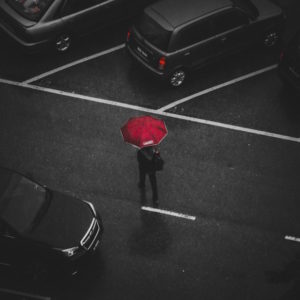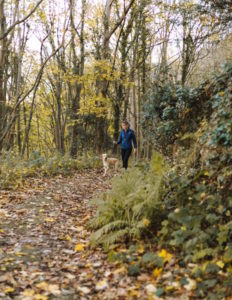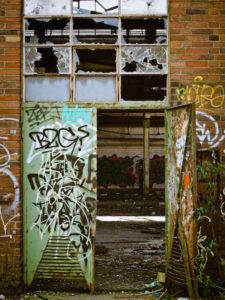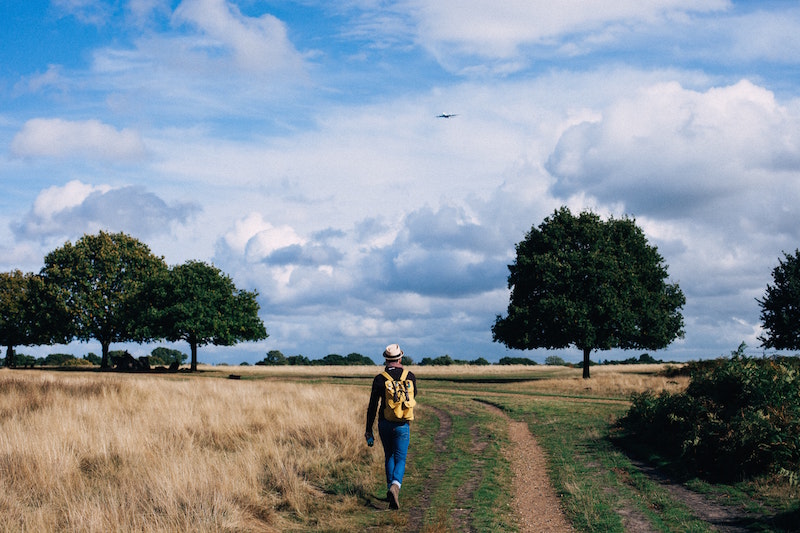Accidents can and do happen. And no-win, no-fee legal teams are quick to help victims to claim compensation for injury or damage to property. If you own or co-own any piece of land, even if there is no public access, you can face legal proceedings if anything happens. Solicitor fees and compensation awards can stretch into the £tens-of-thousands or even more. Luckily, public liability land insurance can buy landowners peace of mind. With it, you can be reassured that you’re covered financially. Read our complete guide to land insurance and find out if you need it and how to get it.
 1) What is public liability insurance for land?
1) What is public liability insurance for land?
Public liability insurance for land is a type of public liability insurance designed specifically for land that does not have any residential or commercial buildings on it.
As a landowner, you have a duty of care to protect the public from being injured by anything on your land. If an accident happens on the land that results in injury or damage to property, you can be sued for damages. Public liability insurance will pay your legal fees to defend the case as well as any compensation that is awarded.
What you need to know
- It’s also sometimes called estate insurance, land insurance, or land liability cover.
- It’s not compulsory, but it can be considered prudent for peace of mind.
2) Who needs it?
Anyone who owns a piece of land that is not attached to a commercial or residential property should consider taking out public liability insurance. This includes farmers, residents associations, neighbours who share a private driveway, and owners of self-build plots.
What you need to know
- You don’t usually need to take out public liability land insurance to cover your garden, as that is generally included in your buildings insurance. However, if your garden is detached from your property, for example, on the other side of a road, you may need to take out separate cover. It’s worth speaking to your broker or insurance company if you’re not sure.
- Similarly, land within the boundary of a commercial property is usually covered by commercial buildings insurance. However, again, if you have a car park located across the road from your premises, you may need to add public liability insurance for land to your cover.
- Don’t fall into the trap of thinking that you don’t need liability insurance because the land is private. Even if there is no public access, you can still be sued by a member of the public if there’s an accident and you can’t prove you were not negligent. It might not seem fair, but legally you have to protect the public from injury.
- If you run a horse-riding business on the land, you are legally obliged to hold public liability insurance.
 3) How much could you be made to pay in a public liability case?
3) How much could you be made to pay in a public liability case?
Public liability legal costs and compensation vary depending on the case. If someone suffers a permanent disability that will severely impact on their life, the compensation awarded can run into the £££.
For example, as a guide Accident Claims Advice advises the following awards can be made:
- A person suffering from a minor head injury and no injury to the brain may be entitled to claim compensation in the region of about £3,000 to £6,000.
- Major damage to the head and brain can result in compensation that is upwards of £200,000.
- Claims of short-term psychological injury can be awarded between £4,000-£10,000.
- Longer-term psychological harm that is severe or permanent can mean compensation upwards of £50,000.
- Compensation for back injury can be around £20,000, with payment for the most severe injuries over £100,000.
- Permanent disability or loss of arms or hands can result in compensation of around £160,000. Even mild injuries can result in an award of around £5,000.
- Loss of sight can lead to compensation over £200,000.
- A severe foot injury can lead to compensation of up to £160,000.
- A severe leg injury can mean compensation of over £220,000.
 What you need to know
What you need to know
- No matter how small the piece of land, it could still pose a risk to the public.
- Land features can significantly increase the severity of any damage or injury that could be caused. For example, trees or water.
- Livestock grazing on the land can also pose a risk to the public. According to the Health and Safety Executive, two to three walkers are killed every year in the UK after being attacked by livestock. If animals graze on your land, you’ll need to tell your insurance company.
4) Common types of claims
The most common type of public liability claim involves slips and trips. These can be caused as a result of the landowner failing to maintain the land properly or allowing obstructions. There are also lots of other potential accidents that could happen. If you’re still not sure if you need to spend money on land insurance, consider some of these common claims:
- A member of the public is walking through a public car park and trips in a pothole, resulting in a badly twisted ankle. This injury prevents the individual from being able to work, so they make a claim against the owner of the car park.
- A courier delivery driver trips on a poorly maintained step outside a block of flats. The fall results in a significant injury that means he will no longer be able to drive. The step is part of the communal area, so the courier driver makes a claim against the residents association that is responsible for the communal area.
- The owner of a self-build plot has left dangerous building equipment out on their land. Local children enter the building site and start playing with the equipment, resulting in injury. Even though the children were trespassing, it can be considered that the landowner did not act with care by leaving the equipment out. A claim is made against the landowner for compensation.
 More examples
More examples
- A rambler is walking along a public footpath across farmland. As the walker climbs over a stile between fields, the stile gives way. The walker falls and bangs their head, causing substantial injury. The farmer is liable because they have failed to maintain the stile properly.
- A diseased tree falls onto a passing car, causing severe, life-changing disability to a passenger. The owner of the land on which the tree was growing is sued for costs to cover the ongoing care of the injured party.
Things to consider
- Could any of these situations happen on the land you own? If so, would you be able to afford to pay the legal fees to defend your case and any compensation awarded?
- It’s not just unknown members of the public that could sue you. If a neighbour is helping you to get your horses in and trips in a rabbit hole and hurts their ankle, they could sue you for damages.
- If any public rights of way, like footpaths and bridleways, run through your land, you can be held liable for damages even if you’re not directly responsible for an injury. For example, in the 2004 case of Wilson v Donaldson, a walker left a farmer’s gate open. This allowed cattle to escape, causing a serious accident on the highway. The court found the farmer liable even though the gate had been left open by a third party. It stated that because the field had a public footpath running through it, the farmer should have anticipated that the gate could be left open. The court found that the farmer should have taken steps to mitigate the risk of cows escaping onto the highway.
 5) What types of land can be covered?
5) What types of land can be covered?
Any type of land in both the countryside and urban areas can be covered by public liability land insurance. This includes:
- Fields
- Building plots
- Woodlands
- Car parks
- Private roads and driveways
- Moorland
- Parks and sports grounds
- Communal residential areas
- Community-owned playgrounds
What you need to know
- If you have a footpath or bridleway running through the land, make sure you inform your broker or your insurer. This will ensure that public access cover is included.
6) What about land with non-residential or commercial structures, such as derelict buildings?
If there are any structures on the land that are not already covered by building insurance, you’ll need to let your broker know.
What you need to know
- Structures like derelict barns, cottages or garages can pose a higher risk. For example, a wall could fall onto someone.
- A comprehensive land insurance package will not only cover public liability but will also provide money for necessary repairs.
7) Insuring land with potentially hazardous features, such as trees or water
As well as derelict buildings, certain natural features can be potentially dangerous and can be likely to lead to more severe injury. This can include trees and water features such as ponds, lakes, streams, and rivers.
What you need to know
- Protect yourself from claims and higher future premiums by regularly checking the health of large trees on the land. Carry out maintenance as required.
 8) Will land insurance cover damage and vandalism?
8) Will land insurance cover damage and vandalism?
Yes. As well as protecting you from compensation claims, a good land insurance package will also cover the cost of putting right damage to the land. This can also include items on the land, for example, fences.
Damage could be caused by:
- Forces of nature, such as a storm
- Fire (accidental and arson)
- Vandalism
9) How to buy public liability insurance for land
Public liability land insurance is a specialist area, so can be harder to find. For example, you’re unlikely to find it offered on an insurance comparison website. If you do, make sure you check all the small print to ensure that the policy provided is the right one for you. Alternatively, speak to an experienced insurance broker, who will know where to look for the best value for money land insurance.
What you need to know
- Remember, the cheapest deal isn’t always the best deal. It could end up costing you a lot more in the long run if the policy doesn’t include everything you need.
- The indemnity, the maximum amount that can be paid out in a claim, varies. For public liability, it is commonly £1 million, £2 million or £5 million. The level of indemnity you opt for will depend on the type of land you own and the risks you face — generally the lower the indemnity, the lower the premium. But take care not to skimp.
- When you hold public liability insurance, your insurance company will usually swiftly take control of handling the claim. They will have a legal team in place to guide you, giving you one less thing to think about.
 These are our tips for getting a better price on cover you can rely on:
These are our tips for getting a better price on cover you can rely on:
- Get as many quotes as possible, or use an independent insurance broker.
- If you need to reduce the premium, consider opting for a higher excess rather than skimping on cover.
- Try to remain claim free by keeping the land well maintained. Previous claims are likely to increase future premiums.
- Public liability is rarely purchased on its own. Buying this insurance, together with other essential insurance in a bundle deal, can result in cost-saving discounts.
Four easy steps to get public liability cover:
- Call Park Insurance’s dedicated land team on 0117 955 6835 or fill in the online form.
- Compare the quotes from a selection of different insurance companies. If you need to discuss these, our team will be delighted to help.
- Purchase your land insurance.
- Sit back and relax, knowing you’re financially protected.
Finally
Uninsured land is just an accident waiting to happen. In today’s litigation-happy world, public liability land insurance is a small cost to pay to protect you from potentially huge financial strain. Look to a public liability for land expert for help and give yourself peace of mind with cover you can rely on.

